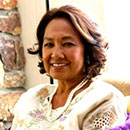To secure a job and succeed in the Canadian workplace, Filipinos will do well to take certain traditional Filipino traits to work and restrain a few.
Many traditional Filipino traits will easily carry the Filipino forward in the Canadian workplace environment.
Filipinos are known for their hard work, loyalty and stability. They are family-oriented and practise a strong faith. These traits spell reliability and trustworthiness to an employer.
Generally, Filipinos are known for their caring qualities which make them suitable in nursing, caregiving, social service and customer service.
Also, Filipinos generally have good interpersonal relationships. This makes them good team players. Generally self-effacing and modest, they do not want to be seen as showing off or calling attention to self (“mahiyain”). They are fun-loving and quickly become well-liked in their workplaces.
Filipinos have a strong respect for authority. As with many Asian cultures, they have a hierarchical style of leadership versus an egalitarian style. (Survey of Workplace Related Internationally Trained Immigrants (ITI) Cultural Traits, by EGC, 2008).
A study by Lionel Laroche and Don Rutherford provides a distinction between ‘hierarchical’ and ‘egalitarian’ cultures and how the difference in styles impact performance in the workplace. (Laroche, Lionel and Rutherford, Don. Recruiting, Retaining and Promoting Culturally Different Employees. Elsvier Inc. 2007)
In hierarchical societies, dependence of subordinates on superiors is accepted as the norm on both sides...Roles are clearly defined and distinct. Individuals are unlikely to question the boss’ decisions. The employee’s task is to follow orders and please the boss... In less hierarchical or more egalitarian societies (as in Canada), a consultative style, equality of status, and interdependence between layers of power are considered desirable.”
The hierarchical leadership style, respect for authority, “hiya” and other Philippine cultural traits when pushed to an extreme, may produce negative results for Filipinos in the workplace. Filipinos should be aware of possible consequences.
Over-respect for authority, including calling supervisors “sir” and “ma’m” may indicate subservience or passivity which is disconcerting for Canadians where relations are more egalitarian between supervisors and supervised.
An employee from a hierarchical culture may expect the boss to give him instructions and does not see anything wrong with not offering ideas. In concert with not wanting to call attention to oneself, the Filipino may end up not actively participating in discussions. When the employee does not initiate, but only implements decisions of the boss, he may seem disengaged and not having ideas. It may be seen as lack of initiative and independent thinking, and may prevent the Filipino from advancing at work.
Employees in Canada are normally expected to provide input to his/her performance evaluation including comments about the supervisory relationship. The former may be difficult for a Filipino who is modest about his abilities, and the latter also difficult as that may mean ‘criticizing’ the boss.
In applying for work, Filipinos cannot let their sense of modesty get in the way of clearly explaining their achievements. The “we” culture of Filipinos (shared by many Asian cultures) may make a Filipino express his achievement in the form of “we did this” or “we did that”, which makes a recruiter in Canada’s more individualistic culture wonder whether the Filipino is ‘hiding behind the team’. Specifying which particular task you did doesn’t mean you are bragging about your role. You are simply providing specific information to the recruiter about your own particular achievements, skills and experience.
The Filipino’s desire to please can sometimes make it difficult for him to say no even when there’s good reason, to requests by supervisors or other team members. This can have a negative impact later when it becomes apparent that saying no would have been the best course of action.
Filipinos could learn to be more assertive – i.e., the quality of being self-assured and confident without being aggressive. Assertiveness training and practice can go a long way to assist Filipinos moderate some cultural traits that, in excess, may hold them back in the Canadian workplace. Along with the many positive traditional Filipino cultural traits, assertiveness will help Filipinos succeed in any Canadian workplace.
This article is based on research undertaken by EGC and Associates for the project Hiring and Retaining Skilled Immigrants: A Cultural Competence Toolkit developed for the BC Human Resource Managers Association of BC (BCHRMA 2008), check this website for more information:https://www.scribd.com/doc/313819966/itiguide#from_embed
Next: Filipinos as Managers in the Canadian Workplace.



